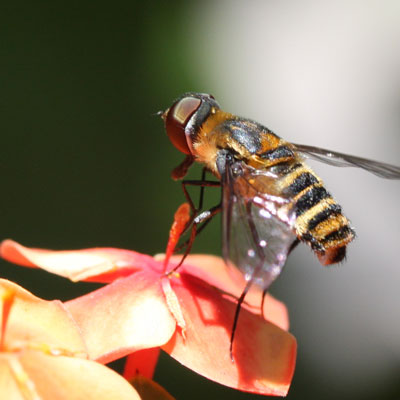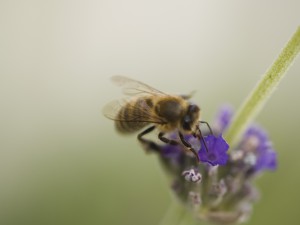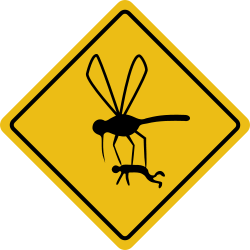
Take the Sting Out of Your Summer
When the sun comes out in the Seattle area, it does not disappoint. We often use the reprieve from drizzle to go for a leisurely walk or finally tackle the overgrown yard. It’s warm. It’s pleasant. Summer has finally arrived. So what do you do when your bliss is rudely interrupted by pesky bees and mosquitos? First step – don’t panic. Unless you carry an epi-pen for severe insect allergy reaction, there several things you can do from home that will make you feel better, faster.
Pest #1: Bees
I grew up terrified of bees. Or rather bee stings. I never actually got stung by a bee, but had plenty of friends who did, and they described something horrible. In retrospect, bees really aren’t a bad looking bug, they make delicious honey, and they pollinate our flowers to brighten things up.
Bee Sting Reactions
Mild Reactions
Most people have relatively minor reactions with sharp pain at the site, swelling, and the development of a welt. The pain and swelling usually subsides in a few hours.
About 10% of people will have a more severe reaction with more extreme redness and swelling that continues over the next day or two. For these people, the discomfort usually last about 5-10 days.
People with mild reactions to stings can try a few home remedies:
- You can try to gently remove the stinger by massaging it out with a credit card. Venom from the stinger will spread within minutes, so you don’t have a lot of time to do this, but also do not try to hard, because you don’t want to squeeze more venom out of the venom sac on the stinger and make things worse
- Wash the area with soap and water
- Use cool compresses for swelling
- Apply a topical steroid to calm the inflammation
- Take Benedryl or other antihistamine to help with itching
Severe Reactions
About 3% of people may have an anaphylactic reaction to bee stings. There are several signs of this, including:
- Skin reactions far away from the bee sting such as hives
- Flushing or going white
- Swelling in the mouth or throat
- Difficulty breathing
- A weak and rapid pulse
- Nausea, vomiting or diarrhea
- Dizziness, fainting or loss of consciousness
If you have had this type of severe allergic reaction, there is a 30-60% chance that you will have the same thing happen the next time you are stung and need to carry an Epi-Pen.
Also, if you are stung by a bunch of bees the buildup of venom can lead to a toxic reaction noted by symptoms such as:
- Headache
- Nausea, vomiting or diarrhea
- Dizziness, fainting or loss of consciousness
- Convulsions
- Fever
Essentially, in the case of either of these more severe types of reactions you should be seen in the Emergency room and/or call 911 for help. It is also critical to know that an Epi-Pen is meant to buy you time to get to an Emergency room for life saving treatment and in the case of a severe reaction is not likely to save your life all by itself.
Pest #2: Mosquitos
Unlike bees, I see no redeeming qualities whatsoever in mosquitos. I’m sure that they fulfill some biologic niche that some entomologist somewhere can appreciate, but I just plain hate them. I’ve seen more than my fair share of these despicable little pests. Growing up in North Dakota, we often joked that the mosquito was the state bird. I’ve never seen mosquitos as large or as numerous as I did there. We had a patio that we surrounded with about 8 citronella torches at night to try to keep them away, but it didn’t seem to work because we’d still give up and go inside after a few dozen bites (each). Pretty much all summer long, my sister and I had 20-30 bites at any given time.
Mosquito bites cause problems because the bite from female mosquitos (male mosquitos don’t have piercing mouthparts and can’t bite humans) contains a secretion that anticoagulates our blood so that they can get a bigger meal. Most people end up with small itchy bumps about 1/4 of an inch in size that itch for a few days, but some people (kids in particular) can form small blisters, or large welts which likely represent an allergic reaction to mosquito saliva (my mother gets welts 3-5 inches in size from bites).
You can treat bites with calamine lotion or hydrocortisone, but if you are one of the unlucky few who gets blisters or large welts there are some additional measures that may be useful:
- Try pre-medicating with an antihistamine before you go someplace where you expect to be bitten. This may help blunt the response. Claritin, Allegra, or Zyrtec are all fine.
- Antihistamines are still helpful after the fact
- Prescription topical steroids that are MUCH stronger than hydrocortisone can help calm reactions down much more quickly
Junk to Avoid
Avon Skin So Soft. When rumors starting circulating that this was an effective mosquito repellent, it instantly became impossible to find in any store in ND. However, it doesn’t do anything at all for mosquitos. I don’t know if actually makes your skin any softer, but if it did, then I think the bugs could just bite more easily.
Citronella. It smells sort of nice, but in the best of studies it only offers about 2o minutes of protection.
Mosquito Bite Prevention
There are only a few effective mosquito repellents.
DEET is the oldest and was developed in the 40’s. Its been well studied and is surprisingly safe for humans. DEET shoudn’t be used on infants under 6 months, should be kept off the hands and face of kids, and should be washed off when you go inside. It works best when applied to exposed skin. There really is no need to 100% DEET unless you plan on being out in the woods for more than 24 hours and for some silly reason can’t just reapply.
Picaridin is a synthetic derivative of piperine, which you guessed it, are the compounds that give pepper its spice. Its only been available in the US since 2005, but works at least as well as DEET. It can be irritating, but overall is probably less irritating than DEET is. It does not harm clothing like DEET does. It is not recommended for children under the age of 3.
Oil of Lemon Eucalyptus in 30% concentration has been shown to also be as effective as DEET, however it doesn’t last as long. It is really irritating if you get it in your eyes. It is the only botanical insect repellent that has been well scrutinized and had good safety and efficacy testing.
—–
Enjoy the weather – avoid the bugs!
-Dr. Miller





No Comments
Sorry, the comment form is closed at this time.